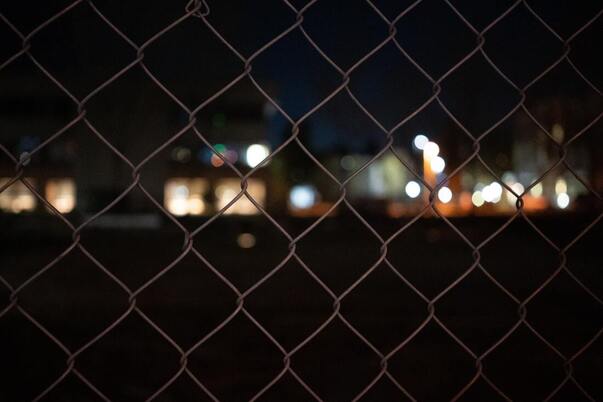|
One of my beta readers pointed me to this song “Have You Ever” by The Offspring (Album: Americana, 1998) and I agree that this song fits the story of Sābanto. I did some internet research on the meaning of this song, and there are a few different theories on what the song is about. Based on what I was able to find, I think this explanation is most fitting: It often feels as if the world is a ride we’re trapped on and we have very little control over our lives. What we see and experience leaves us broken, helpless, and alone. We slowly become numb and spiral into depression because we don’t believe we can make a difference, and the world becomes a dark place. The lyrics “have you ever” ask listeners who relate to these feelings to acknowledge them. We are not alone and many of us feel the same way. If we eliminate crime, however, everyone will be a winner, but if we all walk away, the future of the world remains unknown. At some point, we all need to take a stand and “leave the world as a better place.” The Offspring is an American rock band from Garden Grove, California, formed in 1984. The Offspring is often credited—alongside fellow California punk bands Green Day and Rancid—for reviving mainstream interest in punk rock in the 1990s. Falling, I'm falling
Falling, I'm falling Have you ever walked through a room But it was more like the room passed around you? Like there was a leash around your neck that pulled you through? Have you ever been at someplace Recognizing everybody's face Until you realized that there was no one there you knew? Well, I know Some days, my soul's confined and out of mind Sleep forever (I know) Some days, I'm so outshined and out of time Have you ever Falling, I'm falling Falling, I'm falling Have you ever buried your face in your hands 'Cause no one around you understands Or has the slightest idea what it is that makes you be? Have you ever felt like there was more? Like someone else was keeping score And what could make you whole was simply out of reach? Well, I know Someday, I'll try again and not pretend This time forever (I know) Someday, I'll get it straight but not today Have you ever Falling, I'm falling Falling, I'm falling (Falling) some days, my soul's confined (I'm falling) and out of mind Sleep forever (Falling) some days, my darkest friend (I'm falling) is me again Have you ever Someday, I'll try again and not pretend This time forever Someday I'll get it straight but not today Have you ever When the truth walks away, everybody stays 'Cause the truth about the world is that crime does pay So if you walk away, who is gonna stay? 'Cause I'd like to think the world is a better place When the truth walks away, everybody stays 'Cause the truth about the world is that crime does pay So if you walk away, who is gonna stay? 'Cause I'd like to make the world be a better place When the truth walks away, everybody stays 'Cause the truth about the world is that crime does pay So if you walk away, who is gonna stay? 'Cause I'd like to think the world is a better place I'd like to leave the world as a better place I'd like to think the world
0 Comments
Photo by Ewa Romanowicz Whatever your choice, you’ll still spend a lot of time editing your manuscript to make it the best it could possibly be. You’ll be working with the editor and spending countless hours re-reading your work. Here are some highlights on how you’ll spend your time in traditional vs self-publishing: If you choose to go the route of traditional publishing, you’ll consume an extensive amount of time finding a publisher. It’s your job as an author to find publishers that are interested in you, your genre, and your book. Due to the large number of submissions the publishers get, they require detailed applications with very specific guidelines. Those who fail to follow the requirements are automatically rejected. Some publishers will take months to reply to your submission regardless of whether or not they’re interested. First time authors should expect a lot of rejections, so get ready for them, but keep moving forward and keep trying. You will find a publisher that will eventually help you to get your book out. With self-publishing you are on a straight line to publishing. You do not need to look for a publisher since you are the publisher. Once your manuscript is complete, you can go straight to hiring an editor and skip the searching stage. There is, however, a catch. The majority of first time authors have no clue how to publish their own book, so you’ll have to spend time doing research, listening to podcasts, following other self-published authors, and researching service providers such as editors, designers, marketers. Regardless of which path you take, publishing your second book will be much quicker. There will be less time wasted finding a publisher or service provider. The experience you gained publishing the first book will have paid off. Some writers think that self-publishing will mean having to work harder to make their book known to the public. I think there is some misconception here, because traditional publishers can’t do much without the writer's involvement. They’ll send your book to local bookstores, and they might put out some press releases. In the end, however, it’s you, the author, who will gain publicity by attending the author’s readings and signings. It will be you attending the conferences and praising your book. You’ll spend a lot of time on this, and unless you are an established author, you may not be able to afford to say no to these events. Photo by Danielle MacInnes on Unsplash The idea is to write a fifty thousand word novel in thirty days. An average of fifteen to seventeen hundred words a day for thirty days straight. Doable? Yes, and no. Yes. You can write two thousand words if you put the time in and put your mind to it. You have an idea, and putting it down on paper is the easiest task. No. Most likely the quality of your words, sentences, and ideas won't even be close to the final product that you’re going to want to publish. There are some who can write a great novel in a month. These are experienced writers in their genre, and their focus is typically on the number of books they can sell and not necessarily on the quality of what they write. Don't get me wrong. You could write an interesting book that sells, and many writers do that. However, if you want an intricate plot and character depth, you will need to spend some time making it right, researching, and rethinking your writing. Those quick writers are also very familiar with the expectations of their readers. They can produce a book every couple of months and start selling them instantly. However, I would like you to notice the writers that are famous for their work. Most of them are releasing a book a year, and even sometimes skip a release. Margaret Atwood published her first novel in 1969. To date, she has released only seventeen novels. The most recent one was in 2019. That is 0.3 novels a year. Of course, Steven King or Clive Cussler can write more than one novel a year, but for established, famous writers, this is more the exception than the rule. (Shh ... Some popular writers also have ghostwriters. They don't write all these books themselves.) Yes, you can write a great novel or novella in thirty days, but I guarantee most participants won’t write anything close to publishable. It takes a long time to find your way as a writer. What NaNoWriMo does is give you encouragement to write. So put your story on paper. Write it down, NaNoWriMo or not. The world wants your story, so start writing. |



 RSS Feed
RSS Feed



